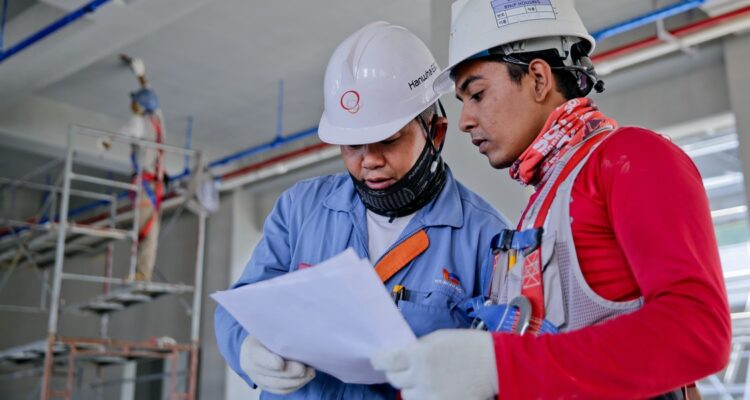
A contractor bond is required if a construction company fails to complete the work as contracted. A bond is issued by a surety company that pays claims in the event of a construction company’s insolvency.
While most contracts include provisions to protect developers and property owners in the event of a contractor’s failure, they do not offer any type of financial protection. Construction surety bonds cover both the developer and the property owner.
Costs Associated with Construction Bond
The cost of a construction bond can range from one to five percent of the bond amount, depending on the amount of business you have with the bond company and your past payment record.
Those with excellent credit might have to pay as little as 10% of the bond, while those with poor credit may have to pay up to 20%. However, the cost of a construction security bond depends on the size of the construction company’s debt.

Obtaining a construction bond is a good idea for a construction company. It helps protect your suppliers from losing money if a contractor fails to complete the project. It also ensures that materials suppliers and subcontractors are paid in full.
If the contractor fails to pay, the surety bond will pay for them. When a contract is completed, it is important to ensure the integrity of the work. If a project is delayed because of a contract dispute, a surety bond will help you avoid this situation.
Why a Performance Bond is Crucial
A performance bond is essential for a construction company, as it guarantees that the work is completed according to the contract. The money paid in this bond will protect the client if a contractor fails to complete the job.
A payment bond, on the other hand, holds a contractor accountable for paying materials suppliers and subcontractors. If the contractor fails to pay these people, a client can tap into the performance of the bond and hire a new contractor to finish the work.
The surety bond company will recover the money by pursuing the contracting company for non-payment. A construction bond is similar to an insurance policy. A contractor purchases a bond to protect himself against the risk of losing his money if he fails to meet the contract.
If a contractor’s work is unfinished, the owner can claim the insurance and the insurer will pay the owner for any additional expenses. Afterward, the contractor must pay the surety back, and the surety will negotiate with the contractor to set up a payment plan.
A construction bond is required for any construction company. The premium varies from one to five percent of the bond. The amount of premium will depend on the size of the construction project and the amount of business a contractor has with the bond company.
Some companies may not require a certain amount of bonding, while others may only need a minimum bond for smaller jobs. The cost of a bond can range from a few dollars to thousands of dollars, so the cost will vary.
Why a Construction Bond Should Be Required
A construction bond is required for many different reasons. It protects the principal and the subcontractors by guaranteeing that the construction company will pay their bills on time. In cases of a payment delay, the contractor can use the payment bond to pay the subcontractors.
A contractor bond can be used as a financial tool to avoid legal trouble. In this way, a construction company can avoid the liability associated with a failed project. A construction payment bond is required for any construction company. It protects the property owner, the subcontractors, and the property owner.
A construction payment bond is required for each project. It must be shown before a client will be able to complete a project. If the project is not completed, the client may use the payment bond to hire a new contractor to finish the work. A construction payment guarantee is an essential part of any business.
A construction performance bond is required to guarantee that the contractor will complete the project. It protects the client in the event that the contractor is unable to complete the project on time. If you’re planning to purchase a bond today, we highly recommend this easy guide.
It also protects the suppliers. In the case of an unfinished project, a performance bond is a necessity. It can also protect the client in case of a cash-flow crunch. The bond will help the client get paid after the project is completed.
